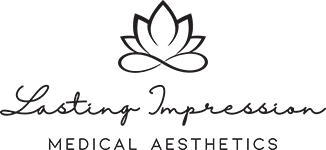FAQ
Here are our Frequently Asked Questions. If you want to know more, please feel free to call us!
Frequently Asked Questions
What is Collagen?
A: Collagen, a fibrous form of protein, can be found all over our bodies: bones, muscles, tendons, and the dermal layer of the skin. Through a microscope, this protein appears like rope bound together or a pile of logs. It provides a framework for the skin, helping to maintain its shape. In reality, collagen accounts for a whopping 70% of our skin.
Why is collagen so important?
A: As the years go by, our bodies start to produce less collagen and our collagen-producing cells, otherwise known as fibroblasts, become less efficient. As a result, the existing collagen becomes weaker and its structural integrity begins to falter.
The decreasing production of collagen, in addition to the aging process, reduces the skin’s ability to stay hydrated and flexible, leading to a diminished volume and sagging appearance of the skin. This manifests in wrinkles, creases, and a lack of elasticity.
Think of collagen as the mattress springs in a bed. Over time, the springs begin to weaken and the mattress eventually sags and collapses. Similarly, aging and sun exposure have a profound impact on the skin, resulting in a less youthful complexion.
When do we start to lose collagen?
A: The decrease of collagen, a regular aspect of the aging process, affects everyone; starting from age 18 and beyond, the typical individual will lose approximately one percent of their collagen annually. By the time we reach the age of 50, we may have lost up to thirty percent of our collagen. Variables like genetics, lifestyle choices like sun exposure, smoking, tension, and air contamination all have an influence on when we will start to notice the consequences of collagen depletion and facial aging, which usually begins in the twenties.
Can we replace lost collagen?
A: It is now possible to promote the natural production of collagen within your skin. Sculptra Aesthetic can effectively reduce the appearance of shallow to deep wrinkles and lines, such as smile lines, over time in the dermal layer of the skin. Unlike other dermal fillers that use hyaluronic acid, which instantly fills wrinkles and folds upon injection, Poly-L-lactic acid (PLLA) is utilized in Sculptra Aesthetic to slowly stimulate your skin’s own collagen production and enhance lost facial volume caused by aging. This biodegradable, non-toxic acid has been in use for more than three decades for numerous medical products, such as dissolvable sutures.
Can lifestyle change collagen slow loss?
A: One of the best ways to keep collagen production in check and, in some cases, boost its formation is to introduce a few simple lifestyle changes.
STAYING OUT OF THE SUN: Protecting skin from ultraviolet radiation, which is abundant in the sun, is vital for preserving collagen in the skin. In fact, a considerable amount of collagen may be lost if exposed to the sun too often and without proper protection. To keep skin safe and reduce collagen loss, it’s best to wear sunscreen and minimize sun exposure.
STOPPING SMOKING: Smoking accelerates collagen depletion by reducing collagen formation and weakening existing collagen fibers. To prevent this from happening, it is essential to avoid cigarettes.
LOWERING SUGAR INTAKE: Research has shown that collagen can be broken down when exposed to high amounts of sugar, causing a phenomenon called ‘sugar sag’. As a result, it is recommended to consume less sugar and protect skin collagen from its breakdown.
